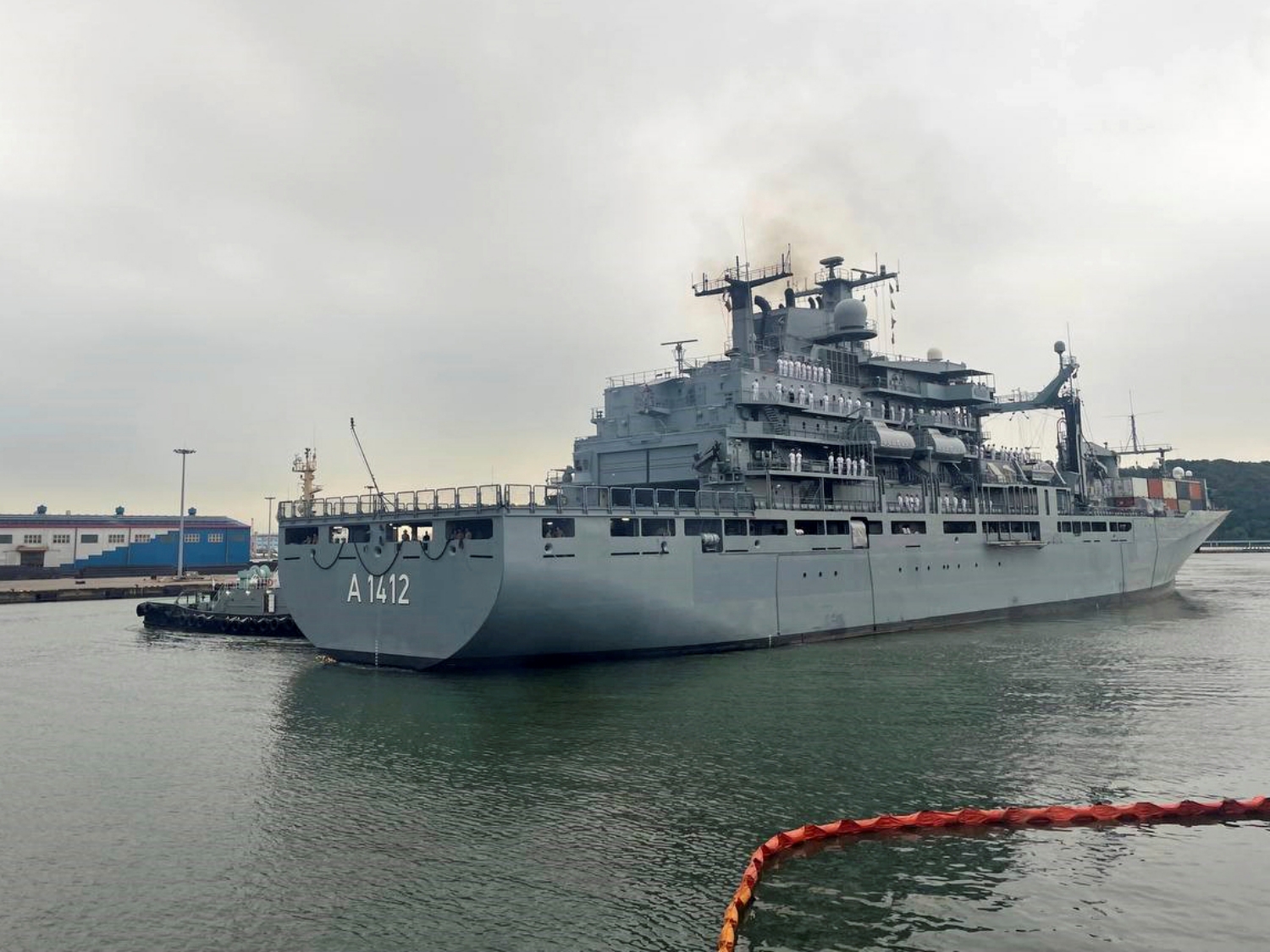On Monday, China issued a warning to Germany against actions it deemed a threat to its sovereignty after reports surfaced that Germany plans to send warships through the Taiwan Strait later this month.
According to Der Spiegel, Germany, a NATO member, intends to have the frigate Baden-Württemberg and the replenishment ship Frankfurt am Main transit through the strait during their journey from South Korea to Indonesia in mid-September.
Mao Ning, a spokesperson for the Chinese Foreign Ministry, stated that while China acknowledges the navigation rights of all nations—aligned with Chinese and international laws including the United Nations Convention on the Law of the Sea (UNCLOS)—it opposes perceived provocations to its sovereignty, especially under the guise of freedom of navigation.
The Taiwan Strait, which is about 110 miles wide, divides mainland China to the west from Taiwan to the east. China considers Taiwan a breakaway province and has not ruled out using force to unify the territories. Meanwhile, the U.S. and its allies maintain that this strait is international waters.
UNCLOS allows for transit passage in straits used for international travel, linking parts of the high seas. All vessels, including military ships, can navigate these waters for continuous transit. The international maritime laws ensure the right to innocent passage through territorial waters of other states.
The U.S. regularly conducts naval operations in the Taiwan Strait, with the destroyer USS Halsey last passing through in May. Canada also sent HMCS Montreal in July to reinforce its commitment to a free and open Indo-Pacific.
Mao reiterated that China considers the Taiwan Strait to encompass its internal waters and demanded recognition of Taiwan’s connection to China during a recent press conference.
It remains unclear how China will react to the German warships. Past instances involving U.S. and Canadian vessels saw the Chinese military dispatch forces to monitor foreign ships closely. According to Rear Admiral Axel Schulz, the German navy anticipates potential Chinese shadowing during their passage but has not indicated a need for heightened security measures.
Interestingly, the German government aims to keep the transit low-key, marking the first naval mission through the strait since 2002. This contrasts with the U.S. and Canada, which typically announce their maneuvers openly. Berlin prefers to project that this passage is routine and remains unfazed by potential protests from Beijing. Last month, China cautioned Germany against meddling in its internal matters by sending naval ships.
State media outlet The Global Times interpreted Germany’s planned passage as a “strategic gesture” towards the U.S. and NATO, characterizing it as an unfriendly act of “flexing muscles.”
The German Embassy in Seoul reported that the Baden-Württemberg and Frankfurt am Main had docked in Incheon, South Korea, on Friday, and are set to depart on Tuesday. They have been involved in monitoring the U.N. arms embargo against North Korea.
These ships began their deployment in May, traversing the Pacific via the Panama Canal, conducting exercises in Hawaii in late June, and visiting Japan in August. Their missions emphasize Germany’s dedication to safeguarding shipping routes, upholding a rules-based international order, and promoting maritime security cooperation. Notably, during their last deployment in 2021, the German navy strategically avoided the Taiwan Strait.
